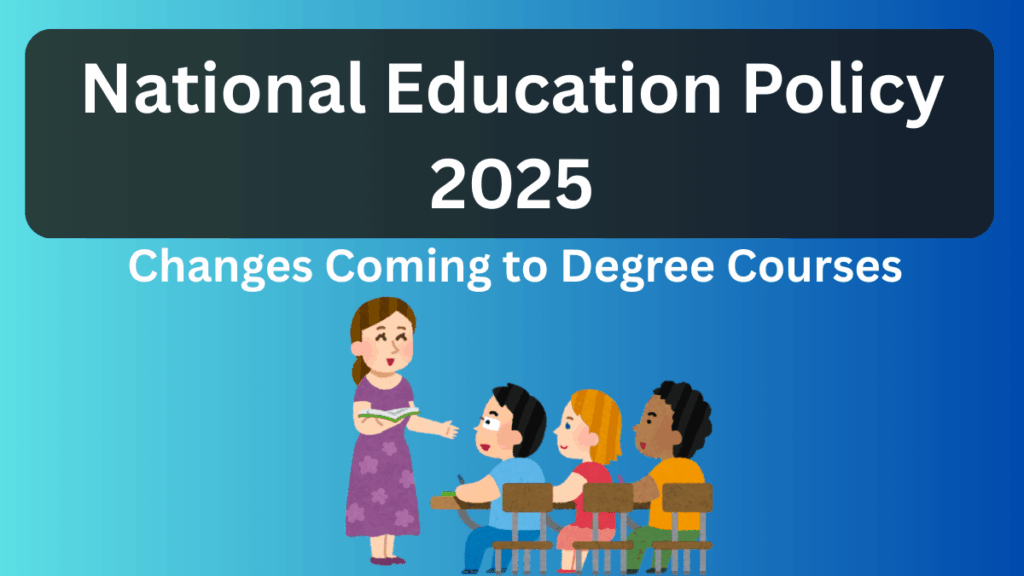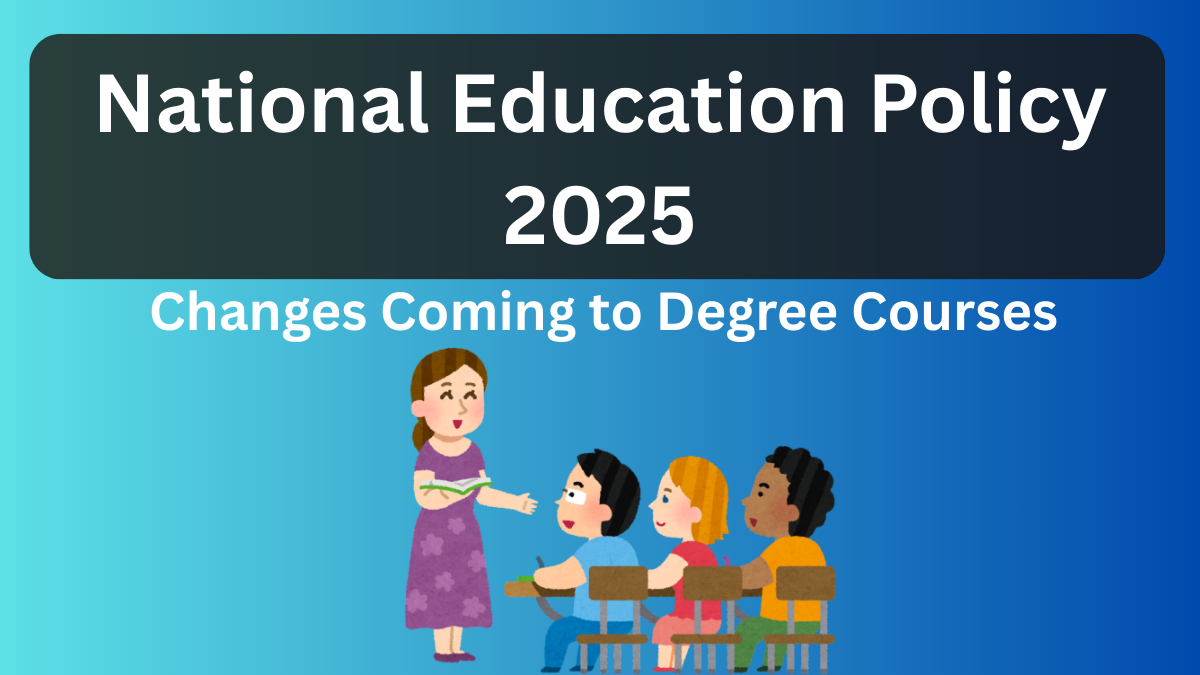India’s higher education system is undergoing a significant transformation. The National Education Policy 2025 degree changes aim to redefine how college education is delivered across the country. With a focus on flexibility, skill development, and multidisciplinary learning, this new policy is set to impact students, educators, and institutions alike.
Let’s explore what these changes mean and how they will reshape the future of education.

What Is the National Education Policy 2025?
The National Education Policy (NEP) 2025 builds upon the foundation of NEP 2020, but goes further in transforming college and university education. The goal is to make education:
-
More accessible and inclusive
-
Flexible in terms of subject selection and duration
-
Skill- and career-oriented
-
Globally relevant but locally grounded
This policy also incorporates key elements of the UGC degree policy, ensuring academic institutions adhere to unified quality standards.
Key Highlights of National Education Policy 2025 Degree Changes
Here’s a table outlining the most impactful changes for students under the new policy:
| Change | Impact on Students |
|---|---|
| 4-Year Undergraduate Program | Offers flexibility with exit points after each year, culminating in a research-based 4th year |
| Academic Bank of Credits (ABC) | Enables students to store and transfer academic credits digitally across institutions |
| Multiple Entry and Exit Options | Students can leave and rejoin courses without losing progress |
| Multidisciplinary Curriculum | Encourages combinations of subjects from science, arts, and commerce |
| Skill-Based Education | Integration of vocational training and internships |
| Increased Autonomy for Institutions | Universities can innovate and redesign programs according to student needs |
These changes reflect the core goals of the NEP college reforms, focusing on creating well-rounded, industry-ready graduates.
Impact on Traditional Degree Courses
The rigid structure of 3-year college degrees is being replaced by a more dynamic model. The 2025 university rules will now allow:
-
A Certificate after completing 1 year
-
A Diploma after 2 years
-
A Bachelor’s Degree after 3 years
-
A Research-Oriented Degree after 4 years
This framework ensures that students who need to pause or discontinue their education still receive recognition for their efforts.
Credit Transfer and the Academic Bank of Credits (ABC)
One of the most innovative aspects of the National Education Policy 2025 degree changes is the Academic Bank of Credits. It offers:
-
Flexibility to switch colleges without starting over
-
A digital record of earned credits throughout academic life
-
Support for lifelong learning and continuing education
-
Interoperability between different institutions under UGC
This system aligns with the UGC degree policy and removes bureaucratic barriers, allowing students to design their academic journey on their own terms.
What Universities Need to Do?
Under the NEP college reforms, institutions will be expected to adapt quickly to support these changes. They must:
-
Restructure curricula to allow exit points and modular learning
-
Introduce interdisciplinary and skill-based courses
-
Collaborate with industries to offer real-world exposure
-
Embrace digital tools for credit management and flexible assessments
The 2025 university rules place greater responsibility on institutions to prepare students for both local and global opportunities.
Benefits for Students
The student is at the center of these reforms. With the rollout of the National Education Policy 2025 degree changes, learners can expect:
-
Control over their academic timelines
-
Broader subject combinations and career paths
-
Practical skills through internships and vocational courses
-
Recognition for partial completion of courses
-
Higher employability through outcome-focused learning
FAQs
1. What are the major changes under the National Education Policy 2025 degree changes?
The NEP 2025 introduces flexible undergraduate courses, an Academic Bank of Credits, multiple entry-exit options, and a multidisciplinary approach to learning.
2. How will the NEP college reforms impact existing university structures?
Universities will need to redesign their programs to match the new credit-based, modular, and skill-integrated format as outlined in the 2025 university rules.
3. Can students change colleges midway through a course under the new UGC degree policy?
Yes. With the Academic Bank of Credits, students can transfer credits between institutions, making mid-course transfers seamless and legitimate.
4. Will the flexible degree options affect job prospects?
No. These reforms are designed to improve employability by integrating real-world skills and offering recognized qualifications even after partial course completion.
Final Thoughts
The National Education Policy 2025 degree changes represent a timely shift toward learner-centric, future-ready education in India. By giving students more freedom, universities more autonomy, and industries a stronger connection to academia, the NEP college reforms are paving the way for a dynamic, resilient, and inclusive higher education ecosystem.
Now more than ever, it’s essential for students, educators, and institutions to understand and embrace the UGC degree policy and the 2025 university rules that will define the next generation of Indian education.
Click here to learn more
Pari is a passionate writer known for captivating stories that blend imagination and reality. Inspired by travel, history, and everyday moments, Pari crafts narratives that resonate deeply with readers.
